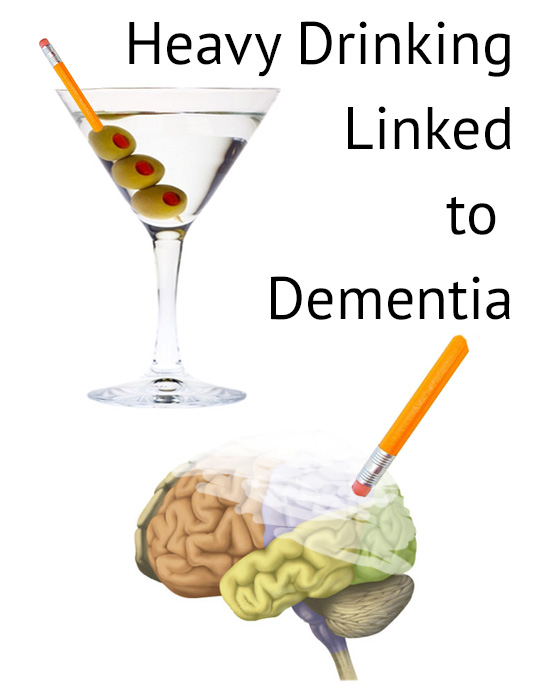A five year study published in March, concluded that heavy drinking and alcohol use disorder are the main contributors to brain disorders, such as Alzheimer’s Disease, dementia and early-onset dementia.
Releasing their data in The Lancet Public Health journal, researchers conducted the study from 2008 to 2013 and report that alcohol abuse is the most significant preventable factor in a dementia diagnosis.

What is Dementia?
Dementia, according to the Alzheimer’s Association, is not a disease, but a range of symptoms related to a decline in memory and other thinking skills. An estimated 60 to 80 percent of all dementia are Alzheimer’s related.
Vascular Dementia, which can happen after a stroke, is the second most common type of dementia. Early-onset dementia occurs when patients under the age of 65 experience symptoms of dementia.
“The findings indicate that heavy drinking and alcohol use disorder are the most important risk factors for dementia,” said Dr. Jürgen Rehm, a coauthor on the study, “and especially important for those types of dementia which start before the age of 65, and which lead to premature deaths.”
The Effects of Heavy Drinking on the Brain
Though there are various definitions, the National Institute on Alcohol Abuse and Alcoholism (NIAAA) defines heavy drinking as four a drinks a day for women and five for men.
According to the researchers, alcohol’s negative effects on the brain include some of the following:
- Ethanol and a metabolite it produces – acetaldehyde – have a neurotoxic effect that causes permanent structural and functional brain damage
- Heavy drinking is a risk factor in other brain disorders, like epilepsy and head injuries that can lead to dementia
- Because heavy drinking can result in high blood pressure, irregular heart rate and stroke, it is also associated with vascular dementia.
- A number of other health concerns linked to heavy drinking, such as cigarette smoking, depression and addiction, are also possible factors that bring about dementia.
Alcohol Dependence is Treatable
Alcohol dependency and alcoholism are treatable conditions. Both inpatient residential facilities and outpatient programs can help people with a combination of medically assisted treatment and various therapies, such as Cognitive Behavioral Therapy (CBT).
It’s well established that alcohol use disorders damage overall health and well-being and, in fact, contribute to a shorter life expectancy by more than 20 years. With treatment and recovery, many of the ill effects of alcohol abuse are diminished and patients can see a significant boost in their physical and mental health.
The gender breakdown of dementia is heavily weighted toward women, though the numbers with early-onset dementia are overwhelmingly slanted toward men. Around two-thirds of all the early-onset cases of dementia in the study, about 65 percent, were men.
Anyone who’s dealt with or lost a loved one to Alzheimer’s or early-onset dementia understands how painful it is to witness these conditions. Though it’s difficult, it’s important to talk about these conditions and the behavior that leads to them.
It’s scary to think about the potential for losing one’s precious memories and having to depend on others for support, especially at a young age.
“Alcohol-induced brain damage and dementia are preventable, and known-effective preventative and policy measures can make a dent into premature dementia deaths,” says to Dr. Rehm.
Related:
Medications To Treat Alcoholism
Does Alcohol Increase the Risk of Breast Cancer?
Why Do Seniors Struggle with Substance Abuse Addiction?





